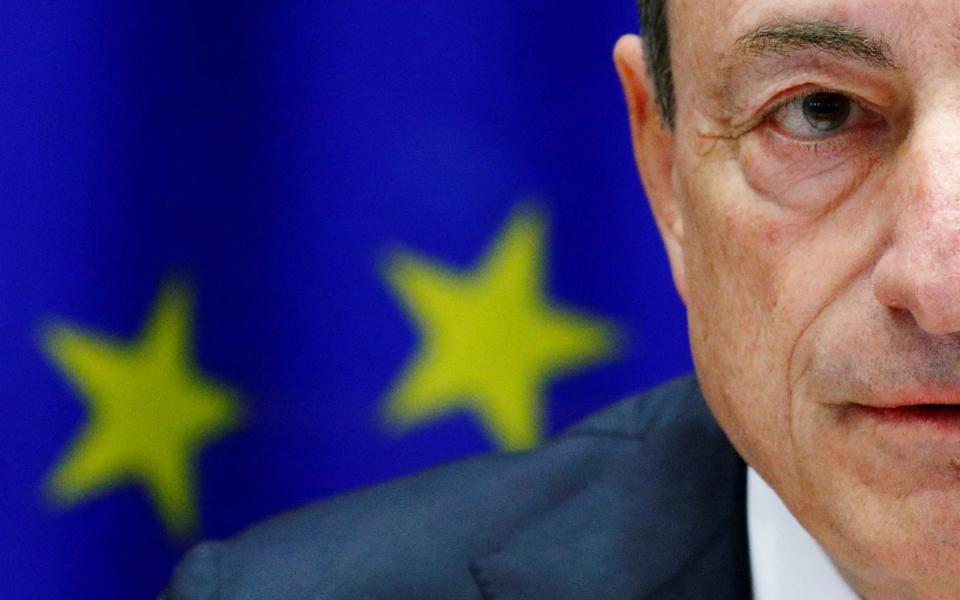Fears that eurozone is turning Japanese as inflation gauge dives

Inflation expectations for the eurozone have plunged to a record low. Investors and traders are worried its economy is slipping into "Japanification", an inescapable period of stagnant growth and ultra-low interest rates.
The decline in a closely-watched inflation gauge – the five-year forward rate – has accelerated as global growth stutters, tumbling to an all-time low of just above 1.10pc yesterday.
The drop indicates investors believe the European Central Bank (ECB) might be incapable of stopping the region sliding into deflation if the world economy suffers a downturn.
Economists have warned the eurozone risks being gripped by the subdued growth, ultra-loose monetary policy and low inflation that has plagued Japan since the Nineties.
Oxford Economics economist Adam Slater believes the region will have to replicate Japan's huge stimulus efforts "if the global downturn worsens and this pushes eurozone states like Italy and Greece towards outright deflation".
"The eurozone's policy options to fight 'Japanification', particularly at the individual country level, are more limited than was the case in Japan," he said.
Although Japan has the highest debtto-GDP ratio in the world, the bulk of its debt mountain is owned by the central bank and domestic investors. The ECB would "need to engage in another bout of 'heavy lifting' via renewed quantitative easing", Mr Slater added.
Subdued inflation expectations are ramping up the pressure on the ECB to revive the region's economy but investors fear policymakers in Frankfurt lack the firepower.

ECB president Mario Draghi admitted following its latest monetary policy decision that the governing council is watching the market's inflation expectations and "taking [the decline] seriously".
"It's also happening elsewhere although admittedly from higher starting levels," Mr Draghi said this month. "So there must be some sort of global factor, but it's certainly something that we take into account in our policy."
Interest rate swaps indicate investors are starting to brace for the ECB to cut rates deeper into negative territory. However, Bank of America Merrill Lynch has warned further cuts risk the eurozone reaching the so-called "reversal rate" - the point at which ultraloose monetary policy "reverses and becomes contractionary for lending".
"The ECB does not have many bullets left when it comes to cuts and it certainly has fewer than other central banks," it said.

 Yahoo Finance
Yahoo Finance 